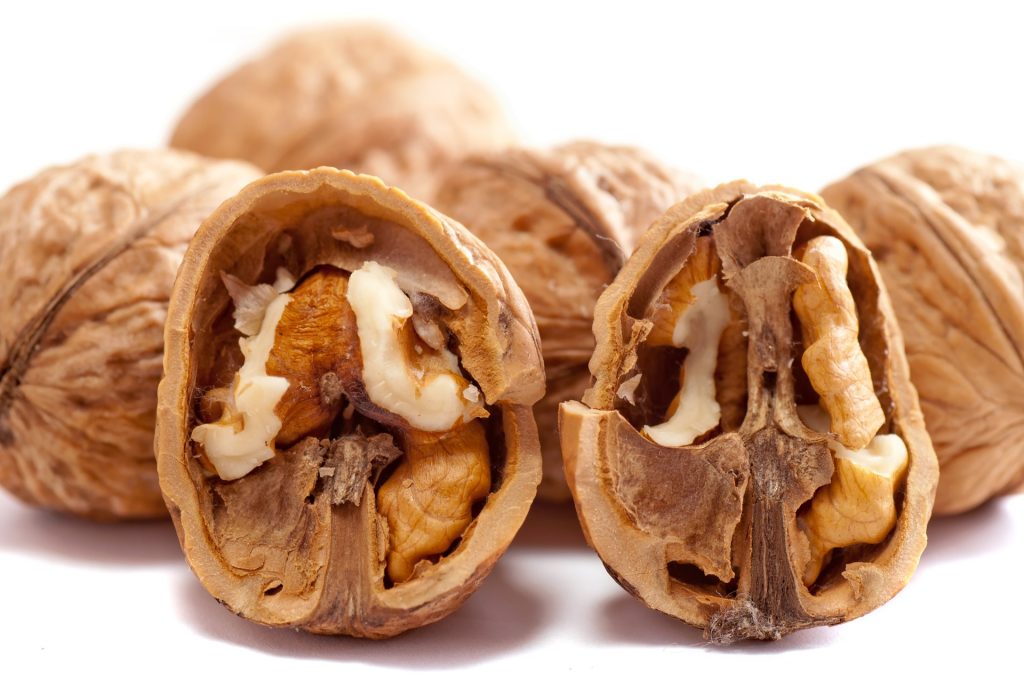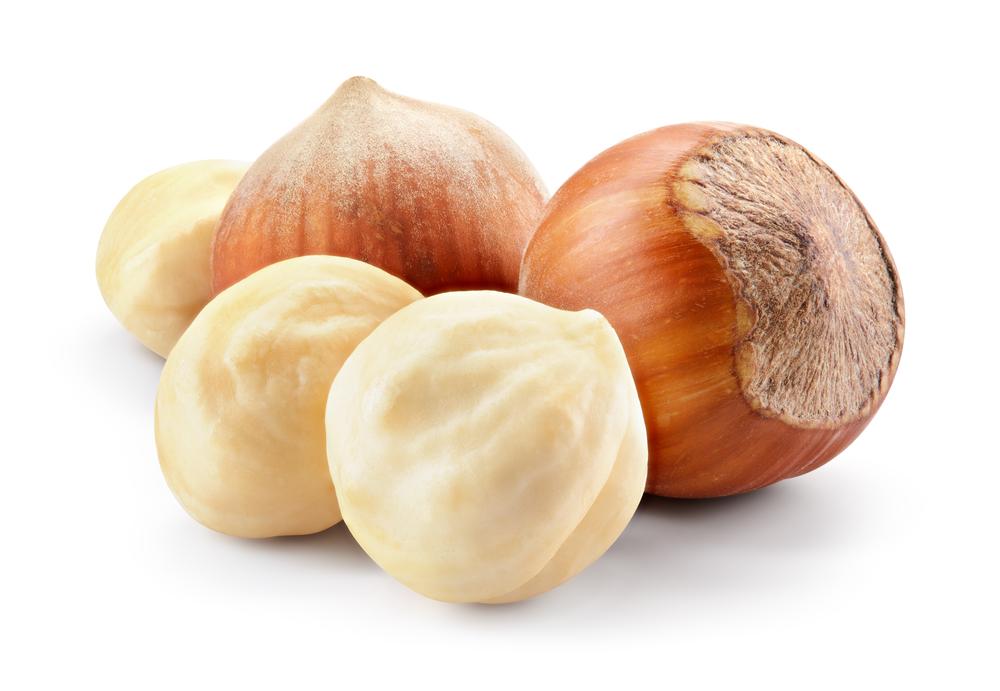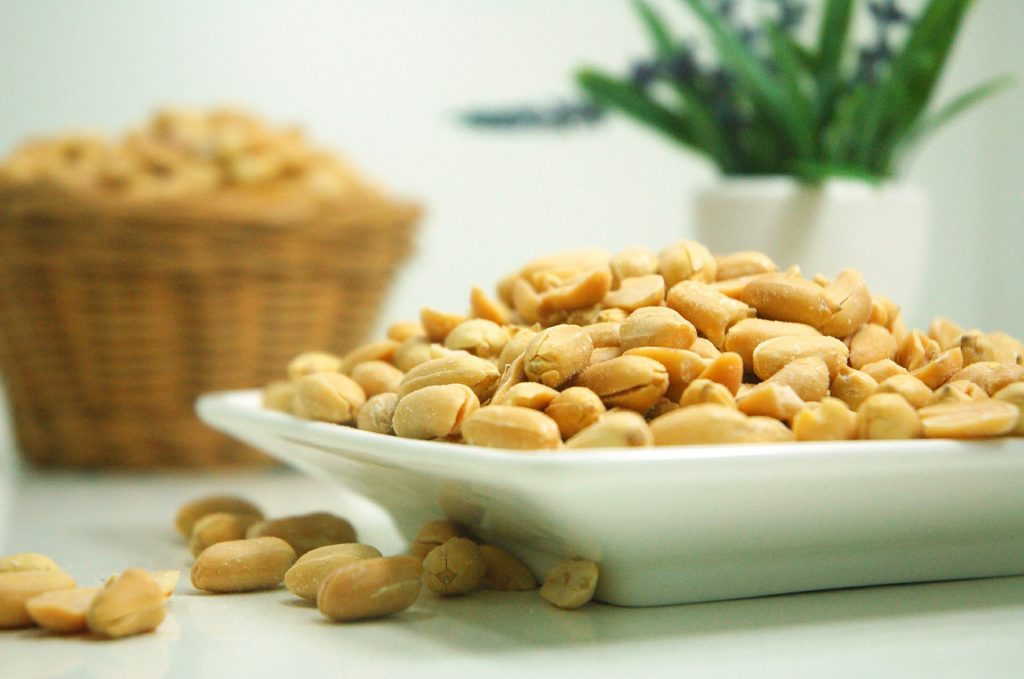Nuts are healthy snacks that, depending on the type, have other properties beneficial to our health. We have a huge selection of nuts on our market.The most popular, such as, for example, walnuts or hazelnuts, can be bought in virtually any store.The largest selection, however, is in health food stores.
The characteristic feature of edible nuts is high fat content (35-60%) and protein (up to 25%). Unfortunately, they are very caloric.For 100 grams of a mixture of various types of nuts roasted in oil, there are approximately 606 calories.
In addition, in vegetarian diets, interchangeable soybeans can replace animal protein.
Although they contain a lot of fat, they are still very high in the rankings of healthy products. This is due to the fact that they contain unsaturated fatty acids that have a beneficial effect on the health of our heart. They are the healthiest of all nuts and dried fruits due to the fact that they are also rich in fiber and protein.
In addition, the high content of B vitamins and vitamin E favorably affect the brain and the condition of our skin. Nuts are also a good source of magnesium, niacin, iron, potassium and phosphorus. There are many studies on the health benefits of regular nut consumption. Some of them concerned the influence of nuts on changing body weight. It turned out that they do not affect weight gain or decrease.
However, despite the small impact on body weight, many studies have shown that people who eat nuts live longer than those who do not. This may be due to the fact that they prevent many chronic diseases. For example, nuts can reduce the risk factors of the metabolic syndrome, such as high blood pressure and elevated cholesterol. In fact, one study involving over 1,200 people found that eating a Mediterranean diet with 30 grams of nuts a day reduced the incidence of metabolic syndrome more than a low-fat diet or a Mediterranean diet with olive oil.
Nuts can reduce the risk of other chronic diseases. For example, eating nuts can improve blood sugar levels and lower the risk of some cancers or type 2 diabetes. They also accelerate the metabolism and soothe the gastric mucosa. Below are some types of nuts and health benefits that are associated with their regular consumption.
In our country, these are the most well-known nuts.They are an excellent source of alpha-linolenic acid from the omega-3 fatty acid family.
One serving, or 30 grams of walnuts, contains more or less:
- Calories: 182
- Fat: 18 grams
- Protein: 4 grams
- Carbohydrates: 4 grams
- Fiber: 2 grams
- Magnesium: 11% of daily demand
In addition, several studies have shown that eating walnuts significantly lowers total and bad cholesterol, while increasing levels of good cholesterol.They also have a good effect on heart health, including normal blood pressure.
Walnuts can effectively help in the fight against inflammation, which can become a direct cause of many chronic diseases.
Interestingly, the study conducted by students showed that eating walnuts can have a beneficial effect on work and the proper functioning of the brain.

Almonds are the seeds of ordinary almond fruit.There are two types of them that are grown in a different way.
The first of them - sweet ones are those that we eat on a daily basis.Unfortunately, they smell only shortly after breaking, that's why bitters are used for oils and spices because they retain their intense aroma much longer.
One serving of 30 grams of almonds, which is more or less their small handful contains:
- Calories: 161
- Fat: 14 grams
- Protein: 6 grams
- Carbohydrates: 6 grams
- Fiber: 3.5 grams
- Vitamin E: 37% of daily requirement
- Magnesium: 19% of the daily requirement
Interestingly, Hindu yogis are treated with three almonds each day and are reportedly less likely to get sick.
Studies have shown that regular consumption of almonds can reduce the level of bad cholesterol, which is not very beneficial for our hearts
However, in one very large study, the results of five other studies were combined and the evidence was found to be insufficient to clearly state that almonds undoubtedly improve cholesterol levels.
Nevertheless, almonds consumed as part of a low-calorie diet can help reduce body weight and lower blood pressure in overweight or those struggling with obesity.
In addition, eating a 30 g almond meal can help lower the blood sugar that occurs after a meal, up to 30% in people who have diabetes on a daily basis. However, this does not apply to healthy people.What's more, almonds have been shown to reduce inflammation in people with type 2 diabetes.
Importantly, almonds can have a beneficial effect on intestinal microflora, supporting the growth of beneficial intestinal bacteria, including Bifidobacteria and Lactobacillus.

Hazelnuts
Hazelnuts are hazelnuts that have less fat than walnuts.They are a good source of many nutrients.
A 30-gram serving contains:
- Calories: 176
- Fat: 9 grams
- Protein: 6 grams
- Carbohydrates: 6 grams
- Fiber: 3.5 grams
- Vitamin E: 37% of daily requirement
- Magnesium: 20% of the daily requirement
Like many nuts, hazelnuts seem to have a good effect on the health of our heart.
One study found that a diet rich in these nuts reduces total cholesterol and triglycerides.Markers of inflammation also decreased, and the function of blood vessels improved.
Other studies have shown that a diet rich in this type of nuts can improve cholesterol levels and increase the amount of vitamin E in the blood.

Peanuts
Unlike other nuts discussed above, peanuts are not nuts growing on trees, hence their name.They are also known under other names such as peanut or peanut.
One serving (30 grams) of dry, roasted peanuts ensures:
- Calories: 176
- Fat: 17 grams
- Protein: 4 grams
- Carbohydrates: 5 grams
- Fiber: 3 grams
- Vitamin E: 21% of the daily requirement
- Magnesium: 11% of daily demand
Peanuts have repeatedly been subjected to research on their impact on our health.For example, a study involving over 120,000 people found that higher nut fat intake was associated with a lower mortality rate.
They can also have a positive effect on the health of our heart. Interestingly, one study found that women who consumed peanut butter five times a week reduced the risk of developing type 2 diabetes.
In addition, the incidence of asthma and allergic diseases may be lower in children of mothers who ate peanuts once a week.
However, almost every peanut butter available on the Polish market contains large amounts of extra oils, sugar and other ingredients. Therefore, it is best to choose those with the highest content of peanuts and a limited number of additives.
Similarly, peanuts that we buy in stores are usually salted. In this form, they can be simply unhealthy.Instead, try unsalted peanuts without fat.

Summary
Nuts are one of the healthiest snacks, because they contain a wide range of essential nutrients.
However, their beneficial effects are attributed to those that have undergone minimal treatment and do not contain any additional ingredients. Many processed peanut products, such as peanut butter, often contain large amounts of salt or sugar. So let's read labels and pay attention to what we eat.
After incorporating nuts into our healthy diet, we can 'see for ourselves' that it was a good choice






